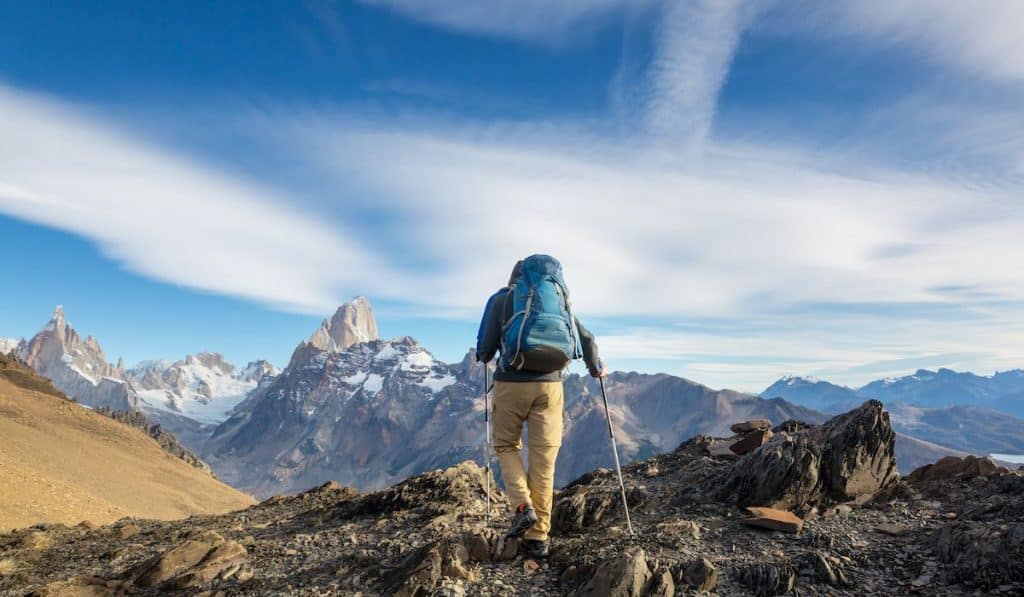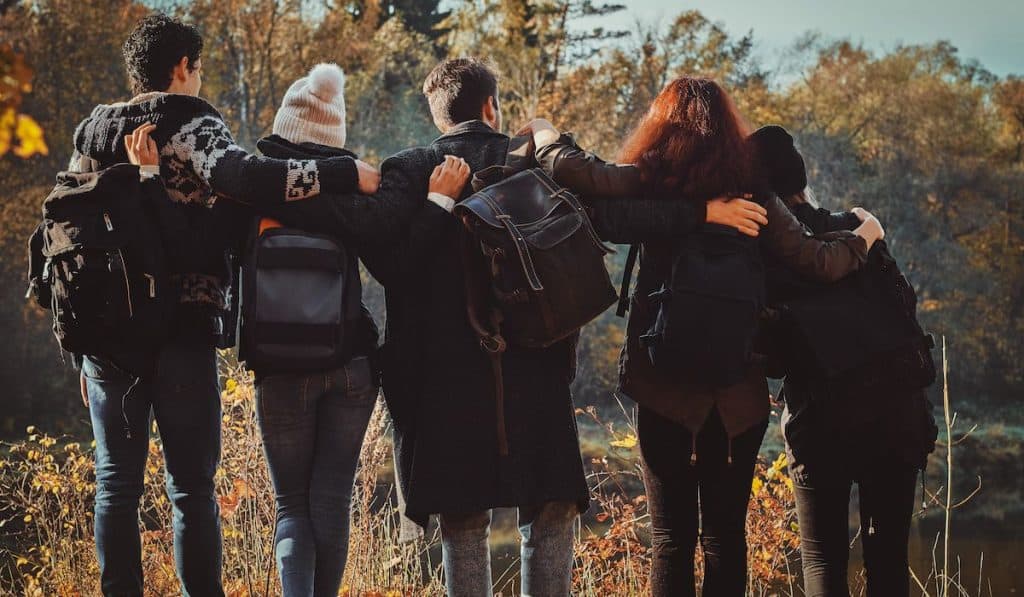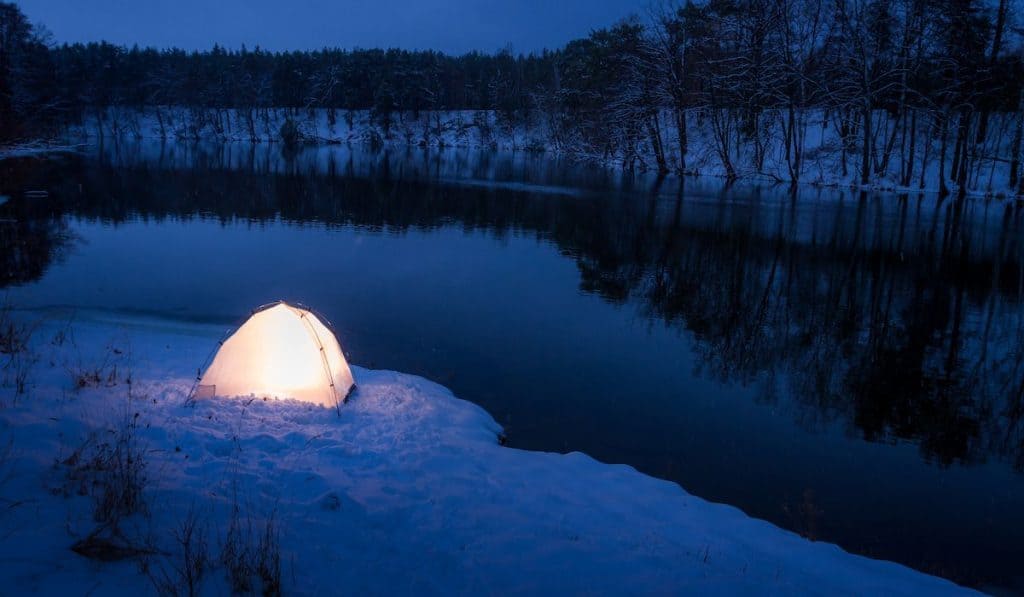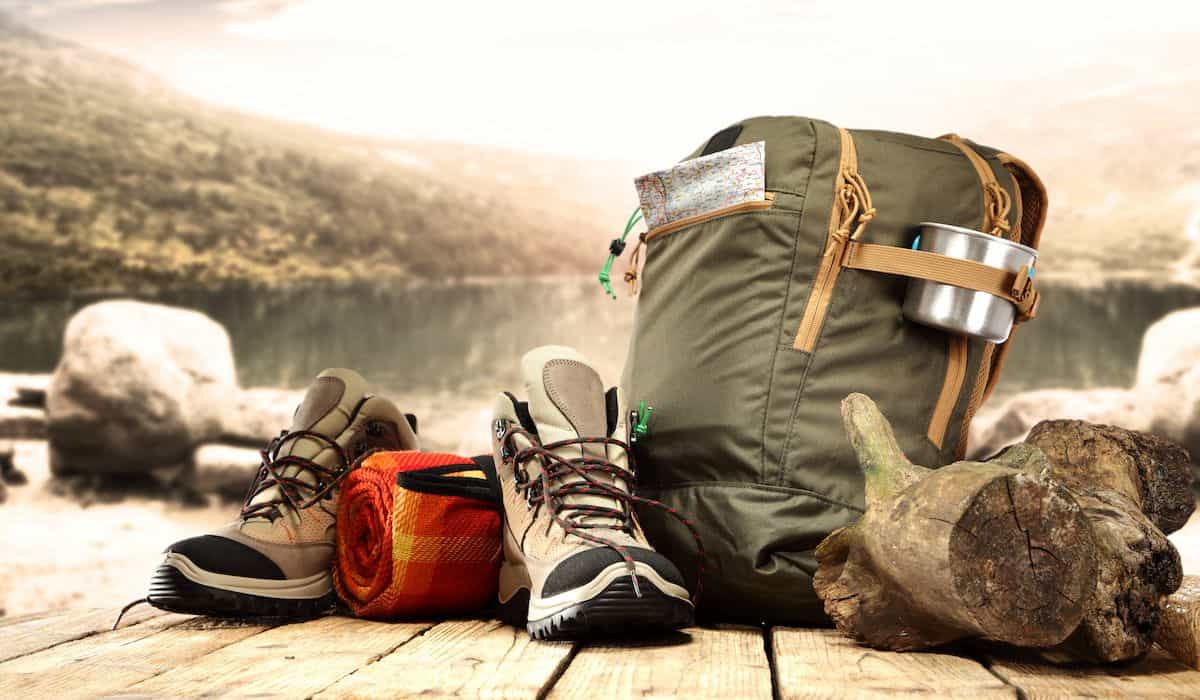“Mom, Dad, I’m taking a gap year backpacking through Asia to find myself.”
This line or variations of it is popular in media. You’ll likely hear it in coming-of-age movies.
Have you ever put yourself in the shoes of a backpacker?
Thought about what a backpacker does, how they make it through various destinations, and how they benefit from all the travels?
Well, this guide will shed some light on backpacking as a hobby.
What is it?
Backpacking is traveling through various locations, typically over long distances, with all your traveling possessions in one pack.
It is an intensive hobby that combines hiking and camping.
Most backpackers choose this activity since it gives them a chance to explore nature only how backpacking would let you.
As much as backpacking is seen as low-cost, it will weigh on your finances when it comes to initial costs. This leads to the next question.

Why Should You Backpack?
Backpacking expands your worldview
As a backpacker, you have two things going for you. You have a sense of adventure and a deep attraction to new experiences.
Traveling to different parts of the world exposes you to people and experiences that will open up your social issues approach.
You meet people who influence and challenge your thinking. These experiences go on to shape your take on life.
It gets your body in shape
Backpacking involves carrying a heavy pack across long distances. You need to work out before going on your solo adventure.
You’ll need the stamina to stay energized on the road. If you’re planning on long stretches, such as multiple locations in one trip, you have to get in shape.
Backpacking is great for people skills
You meet so many people who expose you to their languages and experiences. It makes you learn how to communicate.
Imagine getting lost in a rural village in Spain. You have to find a way to communicate with the locals to retrace your steps.
You pick up life skills
Backpacking has long been regarded as one of the most basic forms of travel and adventure.
The camping aspect of backpacking makes you rely on nature to get the best out of your experience.
You might have fancy equipment. Still, you have to know how to use the equipment when you have little control of the environment.
You might end up looking for water in dry places, seeking shelter in inhabitable environments, or looking for food when your supplies run out.
Money management skills are also tested during backpacking
Surely, you wouldn’t travel miles away from the comfort of your home with no money.
Even if you had a lean budget, you’d still have to figure out how to use the little you have to get the most value.
You learn how local trade works, how to bargain, and how to find the best travel deals.
Each backpacking experience gives you more knowledge for the next adventure.
It is great for your mind
Unless you’re doing it as a group activity, backpacking involves plenty of alone time. You reflect on things that need your attention.
Some people go on backpacking adventures to get clarity away from their immediate environment. They come back with a revamped mindset.
Other people also backpack with specific routes and destinations in mind. All this is in a bid to reset their minds.
Can Anyone Backpack?
Backpacking is not an exclusive activity. Anyone can make a hobby out of backpacking.
However, there are a few things that might limit you from getting your bags and setting off. Responsible backpacking requires that you take your security seriously.
Anybody can travel. However, it is much better to travel in numbers than it is to backpack alone.

Get a group of like-minded people, plan a route and a set of activities, and set off. It also helps if you have a good budget to handle anything that happens along the way.
Backpacking is for you if you have a tough time focusing. It might be because you feel caged by your surroundings.
Get out and see different places in the world. Interact with other people and see what happens after.
You can backpack as a vacation. Sure, sunny beaches and poolside cold drinks are great. You can experience the same thrills through backpacking.
In fact, you might get more out of backpacking than someone who checks into a hotel and spends a week holed in.
Of course, this is a highly personal choice. Some people want to kick back by the pool and relax. You, on the other hand, have a burning desire to explore further.
Has your self-esteem taken a hit? Science says backpacking in nature will help you regain your confidence.
According to the study, changing your surroundings positively impacts selective attention, problem-solving, inhibition, and multi-tasking.
These are areas in your life that require elevated levels of awareness. What do these areas have to do with self-esteem?
Exposure to nature reduces stress and anxiety levels. In turn, you feel better when you accomplish certain tasks within nature.
The overall impact on your sense of self is that you begin to feel more accomplished and confident about your abilities.
You also interact with different people who help you see a simpler side to things.
Sharing experiences makes you more open to your reality and how close we are with each other on similar experiences.
What Do I Need to Backpack?
The key to a successful backpacking experience is your gear. Here, gear is more than what you wear.
You might start light if you are a beginner and you are in a group.
However, if you are looking to venture into solo travel or longer, more challenging backpacking experiences, you will have to invest in personal equipment.
You can take care of your equipment to serve you for a long time.
These are the essentials of a good backpacking trip.
A good backpack
You’re not going anywhere without a good backpack. When it comes to the ideal bag, size does matter.
It determines how much you pack and how much your body can tolerate. If you plan on heavy travel, get a bag that has back support.
A flat solid back is great for your body since it doesn’t force you to bend as you trek.
A good backpack also has other support structures that include belts that tie around the waist.
This support is vital for easy carriage. The waist and chest straps need to be secure as they keep the backpack close to the body.
Check whether your backpack has shoulder pads. Shoulder pads are great for reducing strain on your shoulders.
You ferry around 30 pounds of essentials in your pack. You must check if every feature in the bag is suited for heavy carriage.
Get a backpack with extra pockets. Additional pockets are great for compartmentalizing.
You know where everything is should you need quick access to anything. It is also great for safety.
Tent
Whether you are solo backpacking or you are doing it as a group, a tent is essential.
You might have made arrangements for cozy Airbnb’s. However, you may experience some inconveniences on one of your travels.
A simple tent can save you some costs on hotels. Also, a tent is great for outdoor camping.
If you want to experience nature to its fullest, backpacking goes well with camping.
Get an easy-setup two-person tent. Make sure it’s waterproof and has a protective mesh around it.
Such a tent keeps bugs out of the tent and ensures you remain dry if there’s rain when you camp.
For your first tent, get a light 3-season tent. These tents are made to withstand most weather.

Sleeping bag and sleeping pad
These 2 go hand in hand. A simple one person sleeping bag shouldn’t be too heavy.
However, it needs to be appropriately insulated depending on the weather around the time of your backpacking.
You’ll need a sleeping pad for extra comfort. Just because you are out in nature doesn’t mean you should have a bad night.
In fact, a good night’s sleep under the stars could set the pace for the next day.
Sleeping pads fall into 3 categories; closed-cell foam pads, insulated air pads, and self-inflating pads.
Closed-cell pads have a firm surface that can work for resting your back. Insulated air pads are great for cold season backpacking.
You can save costs on both the sleeping bag and sleeping pad by getting a synthetic sleeping bag. Bags filled with down cost more.
Alternatively, you can use a bivy sack or sleep in a hammock if the weather and the environment are friendly enough.
These 2 options apply best for seasoned backpackers or if you have conducted a recce of the surroundings.
Most sleeping bags’ temperature setting is based on the coldest temperature in which most people are comfortable.
A sleeping bag with a 20-degree temperature setting is good for beginners.
However, make sure you have other accessories in case the night turns colder.
Kitchen equipment
Kitchen equipment is one of the basic requirements for a backpacker. There are small stoves made explicitly for backpacking.
They come with small gas canisters that will last a few days while you’re on the road or out camping.
You can plan your route around an area that allows you to eat out.
However, as you develop your hobby and venture into more adventurous places, you may find it easier and faster to cook in the wild.
Get a small propane gas tank. There are portable tanks that won’t weigh too heavily in your pack.
The kitchen equipment should also have the necessary complementary items.
These include knives, spoons, can openers, and kettles.
Dry and canned food
Speaking of the kitchen, you need some dry and canned food if you’ll backpack and camp.
This might be unnecessary if your backpacking route has rest stops where you’ll be sleeping for the night.
However, pack dry food and canned food if you will be in places where you can’t access food when you need it.
Alternatively, carry protein bars. Protein bars are great on the road since they keep you energized.
Have the protein bars at intervals, so you keep your strength up. If you’re a kitchen guru, get a few tips off YouTube and fix a few home-based protein bars and protein shakes.
Water treatment
You can carry water when you start to backpack.
However, your backpacking checklist should include a water bottle, water filter, and/or water purification options.
You’ll be out of your comfort zone most of the time.
You’ll be wise to carry some water treatment options to avoid any severe case of waterborne illness.
Navigation tools
If you choose to get into backpacking as a hobby, you need to have a compass ready. Every excursion will also need a map.
You can buy several maps before a trip to study the route you plan to travel.
A compass comes in handy when you want to find your bearing.
The right clothes
Invest in proper clothes every time you want to backpack. You can’t have a default set of clothes for backpacking.
It would be better if you shopped for the best options depending on the season and location.
However, your backpack should always include comfortable walking shoes. You can buy hiking boots if your backpacking trip calls for hiking.
Some experiences will have you going for days without a wash.
There are clothes under the long underwear category in backpacking stores that cater to this problem.
The clothes allow you to stay comfortable for long periods without a proper shower.
There are plenty of specialty stores where you can buy top quality backpacking equipment.
However, note that some of the best equipment comes with a high price tag. You can buy the kit as your hobby develops. That way, you learn what works best for you.
Online stores are also a superb option if you’re looking to buy backpacking equipment.
Compare products and reviews to see what fits you. Niche websites such as REI have high-quality backpacking equipment you can trust.
Emergency kit
Make sure you get a well-stocked emergency kit. When you hear of an emergency, the first thing that comes to your mind is a medical kit.
A medical kit is a vital part of an emergency kit.
However, an emergency kit can also have lighters, small lamps, batteries, bug sprays, and swiss army knives.
What skills do I need to be a backpacker?
You’ll need a few key skills to get into backpacking as a hobby. Your skills could be your saving grace if you get stuck in any of your travels.
These skills also make you valuable if you are ever in a team of hikers.
Map and compass reading
Google maps and other direction apps come in handy in our daily travels. However, put yourself in a situation where you can’t use your phone.
You would have to rely on physical maps and a compass to find direction.
Start reading maps to small distances as you learn how to read maps, find the way, and navigate all terrains.
Some books will help you read the charts accurately. However, videos do a better job of showing you how to read maps and compasses.
Packing your bag
Backpacking is all about weight distribution and how to pack as per the requirements of every trip.
Learn how to fold your clothes and store them to take the least space.
Packing is not only about space. It’s about knowing how to pack for the best weight distribution.
The ideal way to get this skill right is to pack your bag up to 30 pounds and carry it. It is an efficient skill that you have to perform to understand.
Knot tying
Even as a scout, tying knots is a valued skill. There are knots for various occasions. Learn how to do the best knots for every situation.
There are loads of tutorials on YouTube where you can learn the basics. Since this is also practical, get a rope and tie the knots as you learn.
Follow up your lessons with practical tying on some of your simple home items.
Important knots include the Bowline Knot and the taut-line knot.
Lighting a fire
This is one of the most valuable skills to become proficient in as a backpacker.
You will need fire-starting skills in most of your camping and backpacking excursions.
Master the various methods of starting a fire. Also, acquire knowledge on fire safety, especially in parks.
You can always get a fire starter kit in your emergency supplies.
There are full guides online that teach you how to start a fire. Still, the real skill only becomes actualized in the field in real-life situations.
Basic First Aid
A backpacker who knows their way around first aid is an asset to any backpacking group.
Learn how to treat cuts, scrapes, and abrasion. This goes with knowing the best medical components to keep in the emergency medical kit.
There are sites where you can read up on or improve your first aid skills.
The RedCross is a prime place to learn all about basic first aid.
Where Can I Learn About Backpacking?
You can live vicariously through other people’s experiences on backpacking. This is something you can do any time on social media.
Instagram, Pinterest, and YouTube are great avenues to see other people do what you want to do.
However, the best time to learn about backpacking is when you feel like you have the energy and the time to explore.
You can learn from independent sources such as social media. Still, nothing gives you as much satisfaction as experiencing it in person.
You pick up lessons firsthand. There are also schools that offer real-life, backpacking experiences as lessons.
They take you on pre-planned backpacking trips as you acquire the skills you need to venture into backpacking as a hobby.
Udemy is a knowledge-rich resource that helps you get skilled in a lot of fields.
It offers online backpacking courses that break down a lot of what you need to know before you go on your first backpacking trip.
Most courses will often have discounts. Take advantage of such offers and get the most bang out of your buck.
You can experience your first backpacking adventure with your classmates after completing the course.

Tips for First-Time Backpackers
If it’s your first time backpacking by yourself, follow these tips to start.
Don’t rush to buy all the fancy equipment
Backpacking doesn’t have to be extravagant. You can plan for short distances and use minimum equipment.
Most stores allow you to rent kits for a friendlier rate. However, make sure you take care of them.
Plan short trips close to home
Plan your trip around a familiar route. This way, you can sharpen your backpacking chops before going full hobbyist.
It’s important to have Geo-locators to help in tracking you if you have an emergency.
Train yourself even as you start.
This begins with training yourself with a full backpack. An essential bag could weigh up to 30lbs.
Although you might start light, you need to condition your body to travel with total weight.
Get fit
You might be doing a lot of walking, lifting, and climbing.
Getting fit might be one of the best things you do for yourself.
It’ll boost your immune system, and your body will recover faster if you venture farther out.
Conclusion
Mid-summer is a great time to start backpacking as a hobby. Take advantage of warm day weather and get the most out of daylight hours.





